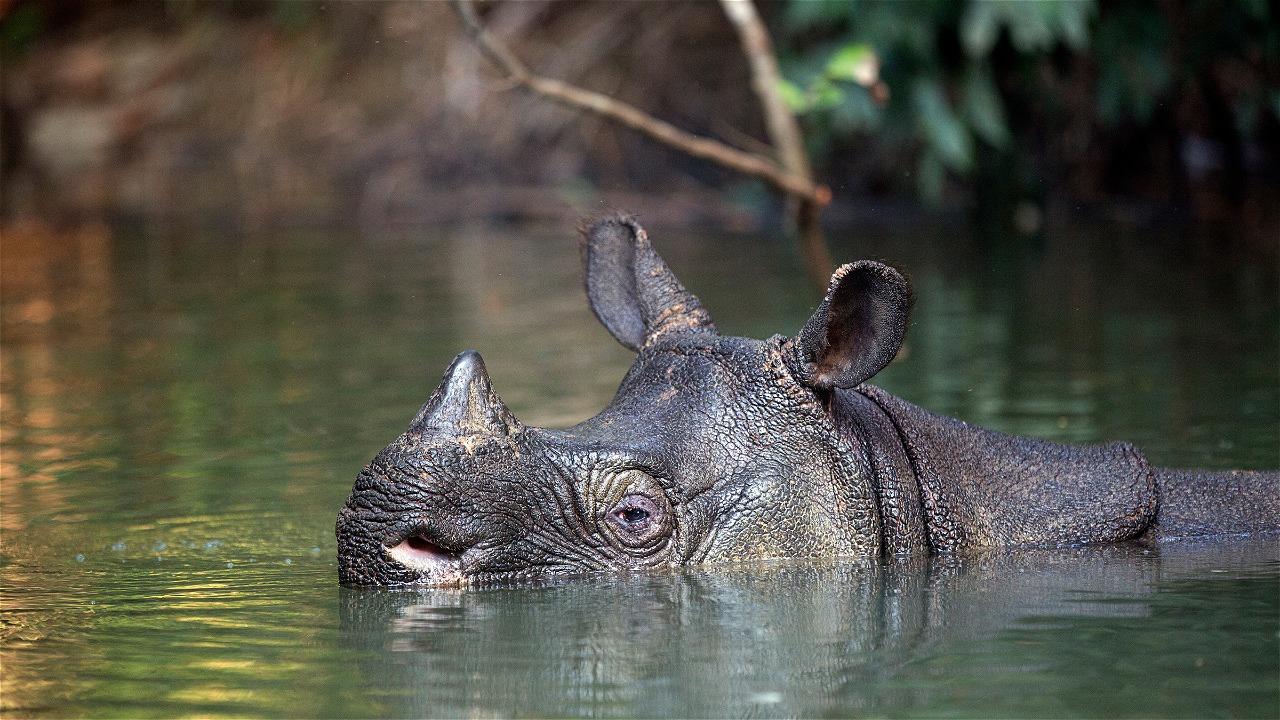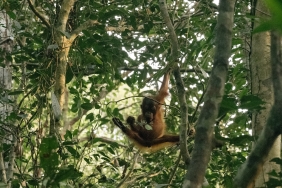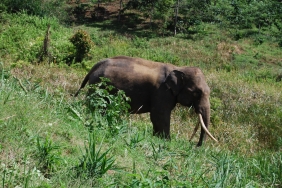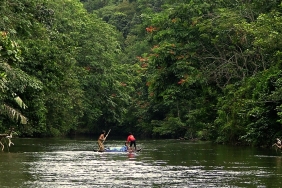SLPO URGES PEOPLE TO HELP CONSERVE JAVAN RHINOS AND STOP ENCROACHING ON FORESTS
By: Sela Ola Olangi Barus
Ujung Kulon National Park (TNUK) is a national park that has been recognized by UNESCO as a world natural heritage site since 1991. Located close to the Krakatau Mountain area, TNUK holds a lot of natural biodiversity. TNUK is not only home to the Javan Rhino (Rhinoceros sondaicus), but also a shelter for 700 species of flora that live there.
Abundant natural wealth can certainly provide many benefits for people who live around the national park. One of the natural utilization activities that can be carried out is the agricultural business. This is driven by the demand for agricultural products, so farming can be an option as a source of economic benefit for the community. But unfortunately, agricultural activities are considered less attractive for people in the buffer villages of TNUK. The reason is the high cost of production in the use of chemical pesticides and other agricultural production facilities.
Seeing this condition, WWF-Indonesia took the initiative to create the Organic Farming Field School (SLPO). Windy Botutihe, Communication and Awareness Officer of WWF-Indonesia in Ujung Kulon, said that SLPO is a community development program to assist and educate the community around the national park about cheap and environmentally friendly agricultural management.
Akhmad Fauzi, WWF-Indonesia's Community Organizer in Ujung Kulon, explained three main points that became the objectives of the SLPO program. First, to bring knowledge and technology closer to the community regarding ecological/organic farming patterns. Second, to reduce the cost of farming production by utilizing the potential of the environment, so that farmers can reduce or even not depend on factory-made agricultural production facilities. Third, to encourage ecological awareness so that the farming community in the village understands the ecosystem in their area, so that they can utilize resources by considering aspects of sustainability.
The SLPO program began to be developed since last year and began to run in April 2017. The implementation was carried out during the growing season, which is eighteen weeks in one program period, starting from land cultivation to post-harvest. The education technique is carried out every week by guiding farmers who are distributed in the SLPO implementation location and carried out directly in the fields. This is done so that farmers can learn directly from the fields and from their farming experience.
The SLPO implementation is currently located in three buffer villages of Ujung Kulon National Park, namely in Trans Village, Keramat Jaya Village; Cegog Village; and Air Jeruk Village, Ranca Pinang Village, Cimanggu District. Meanwhile, another SLPO location is located in Paniis Village, Taman Jaya Village, Sumur Subdistrict.
So far, the community has been very enthusiastic in participating in the SLPO program. This is evident from the consistency of the community who always attend every weekly meeting (for eighteen weeks), as well as in other activities or meetings. The number of communities from the three village locations participating in the SLPO program currently stands at 98 participants. Seeing the enthusiasm of the community for this program, it is hoped that in the future SLPO can develop an agro-forestry-based activity that can be developed by the community in the buffer villages of TNUK.
Related to rhino conservation in TNUK, the SLPO program certainly has an indirect relationship. Akhmad Fauzi explained that when people living in buffer villages are able to optimize livelihood sources around the village, then this will certainly strengthen the guarding of the TNUK area which is the habitat of Javan Rhinos. In addition, the implementation of SLPO which uses an ecological approach makes the community able to understand the benefits of the national park area, including forests. So that what is prioritized now is how to rebuild the balance of the ecosystem in the agricultural area. Windy Botutihe added that the SLPO program also increased the awareness and concern of the community to preserve livelihood sources originating from upstream areas, in this case the Ujung Kulon National Park area. The increasing awareness and concern of the community around the area to participate in conservation efforts is a hope for the realization of a sustainable Javan Rhino habitat.





